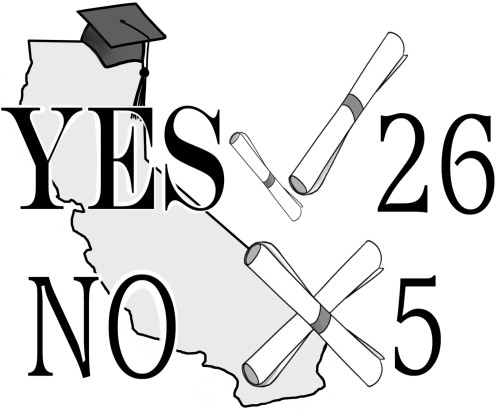Staff Editorial: Will community college bachelor’s degrees benefit California?
On Sept. 18, Governor Jerry Brown approved Senate Bill 850 (SB 850), which will allow the implementation of baccalaureate degree pilot programs at community colleges. By the 2017-2018 school year, 15 community colleges will offer bachelor’s degrees in majors that are not available at Universities of California (UCs) or California State Universities (CSUs) in a pilot program to determine the viability of SB 850. Some of these majors include biomanufacturing, health information management, respiratory therapy and airframe manufacturing. The primary objective of the legislation is to ensure that there will be enough qualified employees to fill upcoming job openings.
Since community college tuition is significantly cheaper than that of a state university, SB 850 provides a significant benefit in providing more opportunities at an affordable cost to low-income students, as well as increasing upward mobility. Although some may argue that low-income students already have adequate opportunities, they would have a more difficult time paying for a four-year university if they have to take out loans with interest, resulting in substantial debt. According to KQED News, UC students leave school with an average of $20,500 in debt, compared to $18,460 for CSU students.
This would also benefit California’s economy, as California currently faces a major skills gap in the workforce, according to Edsource. Making bachelor’s degrees more accessible to more Californians means that it will become easier to fill job openings. Since many of the majors are Science, Technology, Engineering and Math (STEM)-oriented, they will suit a rapidly expanding sector. Additionally, because these majors are unique, they help students pursue interests they might not be able to at a four-year university.
Critics of SB 850 question the quality of bachelor’s degrees obtained at community colleges and say that this legislation might even lower the value of holding one; however, each college still ensures that its professors are qualified. Despite the possibility that employers will become more picky, California will still need one million more workers with four-year degrees by 2025, according to the Senate District 39 website.
One significant concern about SB 850 relates to funding, since the program might not be sustainable in the long term and would likely lead to an increase in taxes. However, the state economy would still improve overall because more of the college graduates holding bachelor’s degrees would have less debt and would thereby be more financially stable. Ultimately, providing bachelor’s degrees at community colleges is a step in the right direction toward improving California’s economy and encouraging more opportunities for everyone, especially those who have difficulty affording postsecondary education.
